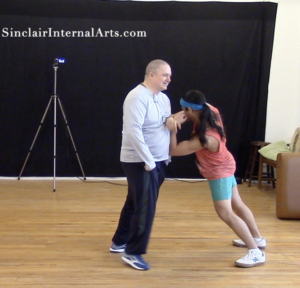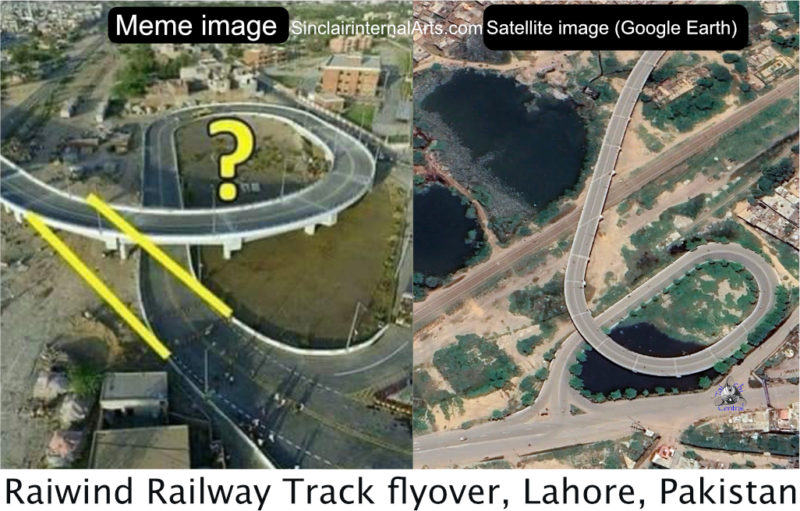Migrate this

We all have blind spots in our thinking. Martial arts exploit these all the time. Marketers are getting better at it doing it. Social media has mastered it. It is also turning us into bullies… and making us stupid.
Check out the video at the end of this post if you want to get smarter.
We spend so little time engaging, in person, with smart people who disagree with us, that algorithms are making idiots of us all.
Have you recently seen posts that ask questions as if the question were the answer? Have you been shown something that seems so ridiculous that you just assume that your inability to understand someone means the other person is confused?
We often hear it in the news, or on a post somewhere. It might go something like this. “Why won’t they just let us (insert selfish but seemingly reasonable action here)?” There is an answer to their question. But they are not interested in hearing it. And so, they break the law, or encourage others to do so, without finding out why the rules exist. (Often it is to save their life and the lives of others.)
Or someone will say, “We need to find out what it going on.”
If they wanted to know what was going on, they could ask the people who spend their lives studying the problem. But they are not seeking a solution. They are seeking conflict.
It happens to us all the time in martial arts. It is a fundamental flaw that leads to all defeats. When an opponent’s action surprises or confuses us, we tense up, resist, and fight against whatever we think they are trying to do. This leads to a condition Feng Zhiqiang called “bulls butting heads.” The winner is always the first person to correct this flaw. Paradoxically, the first person to stop resisting wins the fight.
Different martial art schools have different names for the required skills. In tai chi, we use terms like “listening, understanding, following, joining, sticking, adhering..” etc. It involves understanding what the truth is, why it is true, and how it affects you. It involves not merely responding with the most obvious answer, but understanding the question, and why the question is the question in the first place.
That is why tai chi routines are so slow. We are exploring the relationship between thought, emotion and posture. We are using the methodical cultivation of insight to train our natural instinct. We think deeply in practise so that we don’t defeat ourselves when confronted by a real threat.
When we see a photo like the one below, of a Railway overpass in Pakistan. It seems like it is asking a question. “Why put this extra loop in the road instead of going in a straight line?” The implication is that a straight road would make common sense.

But here is the thing about common sense. “It just makes common sense” is just our way of saying “I don’t have time to think deeply about this.” The amazing thing is how little thought is actually required to understand this situation. Look at the location of the intersection in the lower right of the photo, or look at the location from farther away. The bigger picture reveals that a straight road would be too steep, and would make for a very dangerous intersection, leading to more accidents and deaths. There are also geological questions, and water features to consider. The cost of making that road straight would be immensely impractical considering the layout of the surrounding city. In order to have a functional intersection, a straight bridge would have to be extended past the intersection, and two larger loops would have to be built, or the road would have to merge farther south, and another ramp built to the north. The more you look at it, the more clever the engineers seem to be, and the more foolish you will feel for questioning the design.

The sad thing is that this photo has been a meme for a long time. But it only took me about 30 seconds to find an explanation online.
If we apply that sort of simple effort, repeated a few times with various memes, it might help us to avoid the traps that social media keeps setting for us.
Tai chi practice is like that. Spend a little extra time and effort exploring the mind and body in more depth, and your natural instinct will serve you better when you don’t have time to think. Slow, deliberate, conscious effort, leads to more effective natural instinct.
In 2002, the Nobel Prize in Economic Science was shared by Vernon Lomax Smith and Daniel Kahneman. They challenged the assumptions of human rationality in modern economic theory. Kahneman wrote a book in 2011 called “THINKING FAST and SLOW” ISBN 978-0374275631, OCLC 706020998 The book’s thesis describes two modes of thought, System 1 and System 2. “System 1” is fast, instinctive, and emotional. “System 2″ is slower, logical, and deliberate.”
When I was starting to learn tai chi back in the 1970’s and 80’s, my teachers might have referred to them as lizard brain and rational brain.
My knee-jerk reaction to reading about Kahneman’s work is to ask, “Are algorithms that social media and search engines use, deliberately preying on our emotion and instinct, and bypassing our rational mind? Have marketers found a way to profit from our over-reliance on system-one?
Are they using science to make us stupid?
Can science reverse this trend?
Or do we all just need to do more tai chi?
I’m just asking the questions.
Asking the questions brought me to the following video:

Comments are closed.